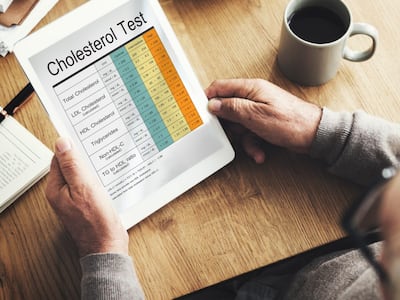
Working with a healthcare professional to address high cholesterol levels through dietary changes, exercise, and possibly medication is essential.
Having high cholesterol itself does not directly induce weight increase. However, the foods that often contribute to high cholesterol, such as those high in saturated and trans fats, can also be additionally, people with high cholesterol may be at a higher risk for conditions like hypothyroidism. So, while high cholesterol doesn’t directly cause weight gain, managing cholesterol levels through a healthy diet and lifestyle can also support weight management.
What Happens To Cholesterol When You Lose Weight?
When you lose weight, your body undergoes several changes, including alterations in cholesterol levels. As you shed excess fat, your body may experience a decrease in LDL (low-density lipoprotein) cholesterol, commonly called “bad” (LDL) cholesterol. Additionally, weight loss can lead to increased HDL (high-density lipoprotein) cholesterol, known as “good” cholesterol, heart disease and other health issues. It’s important to note that individual responses to weight loss can vary, so consulting with a healthcare professional for personalized guidance is recommended.
Is Weight Gain Associated With Rising Levels Of Cholesterol?
Yes, weight gain can be associated with rising cholesterol levels. While weight gain doesn’t directly cause high cholesterol, it can lead to lifestyle habits contributing to increased cholesterol levels and consuming excess calories, especially from foods, elevated cholesterol levels. Additionally, weight gain is often linked to reduced physical activity, further impacting cholesterol levels, which are essential to help maintain healthy cholesterol levels.
Does Your Cholesterol Go Up When You Lose Weight?
Yes, cholesterol levels can rise temporarily when you lose weight. This occurs because, as your body breaks down fat stores for energy, the cholesterol contained within the fat cells is released into your bloodstream. However, in the long run, weight loss improves cholesterol levels by reducing body fat and adopting a healthier lifestyle. It’s always best to consult a healthcare professional for personalized advice regarding your health concerns.
Why Does Cholesterol Increase When Losing Weight?
During this process, more cholesterol is released into your bloodstream, temporarily increasing your cholesterol levels. However, as you continue to lose weight and maintain a healthy lifestyle, your cholesterol levels should return to normal or decrease.
Does Having High Cholesterol Make It Harder To Lose Weight?
High cholesterol can make it harder to lose weight. Elevated cholesterol levels can indicate an underlying metabolic imbalance, which may affect your body’s ability to metabolize and break down fats efficiently developing conditions such as insulin resistance, which can further complicate weight loss efforts. Working with a healthcare professional to address high cholesterol levels through dietary changes, exercise, and possibly medication is essential.





